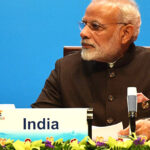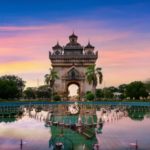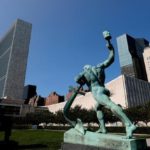
The United Nations may be flawed and it may have a diversity problem in some agencies, but it can’t be called racist. François Soudan’s article on racism on 2 November argues that the United Nations system is built to preserve the “subspecies” of white males. Racism does exist within the United Nations system. It’s hard to deny this given the allegations detailed in Foreign Policy in October. However, it is important to put this in the context of the progress that has been made within the UN system on issues of equality, race, and gender.
Champion for human rights
The UN, despite its poor development record in Africa, has been a champion for human rights and the elimination of racism and discrimination around the world. This was first expressed in the Universal Declaration of Human Rights, and later, more concretely, through the adoption of the International Convention on the Elimination of All Forms of Racial Discrimination in 1969.

The UN’s advocacy and leadership helped mobilise and galvanise international public opinion against the oppressive apartheid regime in South Africa. Four international days have been made a permanent part of the UN calendar, including Nelson Mandela Day on July 18 and the International Day for the Elimination of Racial Discrimination on 21 March. We are currently in the International Decade for People of African Descent.
Soudan dismisses the historic complement of UN former Secretaries-General, the majority of whom have been persons of colour, including Ban Ki-moon of Korea, Kofi Annan of Ghana, Boutros Boutros-Ghali of Egypt, Javier Pèrez de Cuèllar of Peru. U Thant of Burma (Myanmar) replaced Dag Hammarskjöld, who died in a plane crash attempting to broker peace in the Democratic Republic of Congo. Dismissing the past also means dismissing the present, embodied in the leadership of Nigeria’s Amina Mohammed, the Deputy Secretary-General, who played a key role in the post-2015 Development Agenda process.
Global South representation
While the record of the UN Office for the Coordination of Humanitarian Affairs (OCHA) leaves a lot to be desired in terms of hiring an equitable share of Africans and screening qualified candidates from southern states, the UN has made significant progress in ensuring that people from the Global South are represented where much of the UN’s work is done—inside UN member states themselves. At UN agencies like the International Organization for Migration (IOM), gender parity is high and 83% of staff come from the Global South. As of 2019, 90 different nationalities were represented at the senior level and 136 at international professional level. The senior leadership of the United Nations Children’s Fund (UNICEF) and the United Nations Development Programme (UNDP) should also be included as models of both diversity and gender equality.
Racism does manage to invade the hallways of the UN. Part of that is due to the antiquated system of humanitarian and development aid that saw about 1% of humanitarian relief funds reach national or local organisations in response to major crises. This funding inequality leads to a capacity drain or limitation on ability to deliver local solutions to local problems. Racism exists outside the UN as well, in the private sector and the development, or non-profit sector. Part of the solution is building the capacity of local agencies and giving diversity and race greater consideration in the subcontracting process. Both are essential.
Unpublicised Pressure
Soudan’s claims are essentially the same as those made by Foreign Policy and his article offers no solutions or possible remedies. Nor does the article address some of the less publicised work of the United Nations Human Rights Council in response to the death of George Floyd and in support of the broader Black Lives Matter movement.
In accordance with member state reviews of human rights records under the Universal Periodic Review (UPR), the United States both in 2015 and in 2020 had to explain its ugly trend of police officer-involved shootings of African-Americans and treatment of people of colour in the American criminal justice system.
In 2015, the United States had to submit a report to the UN in the wake of the decision not to indict officers who killed Michael Brown and Eric Garner. At the 2015 UPR, states like Pakistan made direct appeals to the UN to “end police brutality against African-Americans and rectify the judicial as well as social economic systems that systematically discriminate against them.” Other countries, including Chad, angrily denounced the United States, suggesting that “recent events targeting black sectors of society [had] tarnished its image.”
In other words, the UN works through many different means to ensure accountability and put pressure on member states for human rights protections and calls for social justice. Much of this work is vastly under-publicised or ignored – which reduces the pressure on member states such as the US, and leads to a distorted view of the UN.






